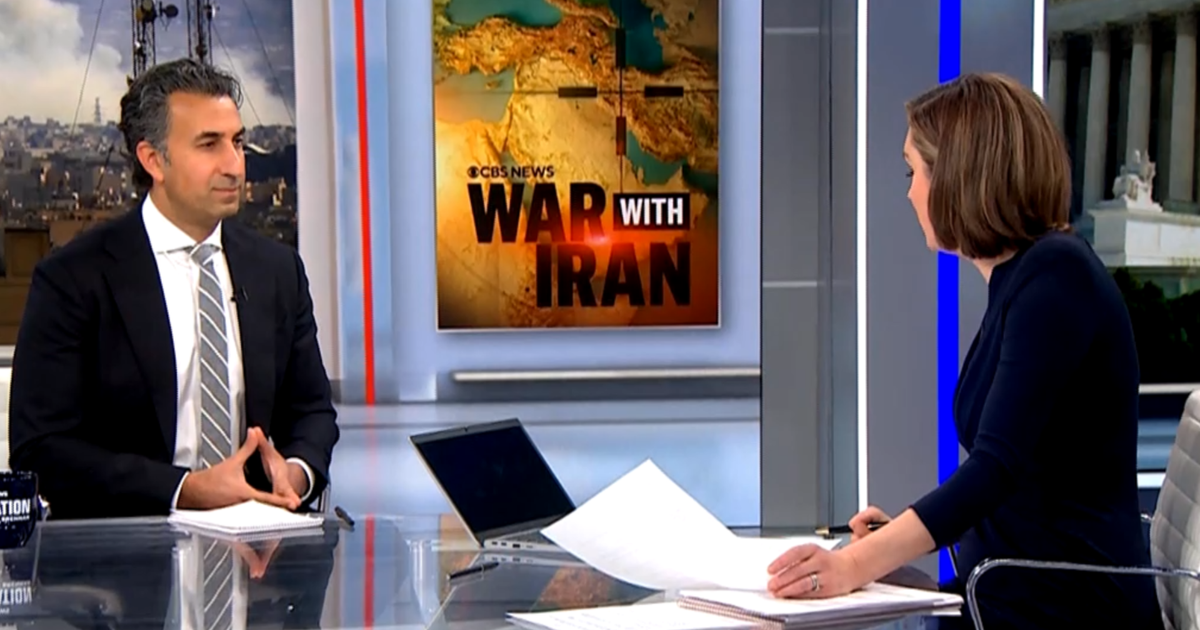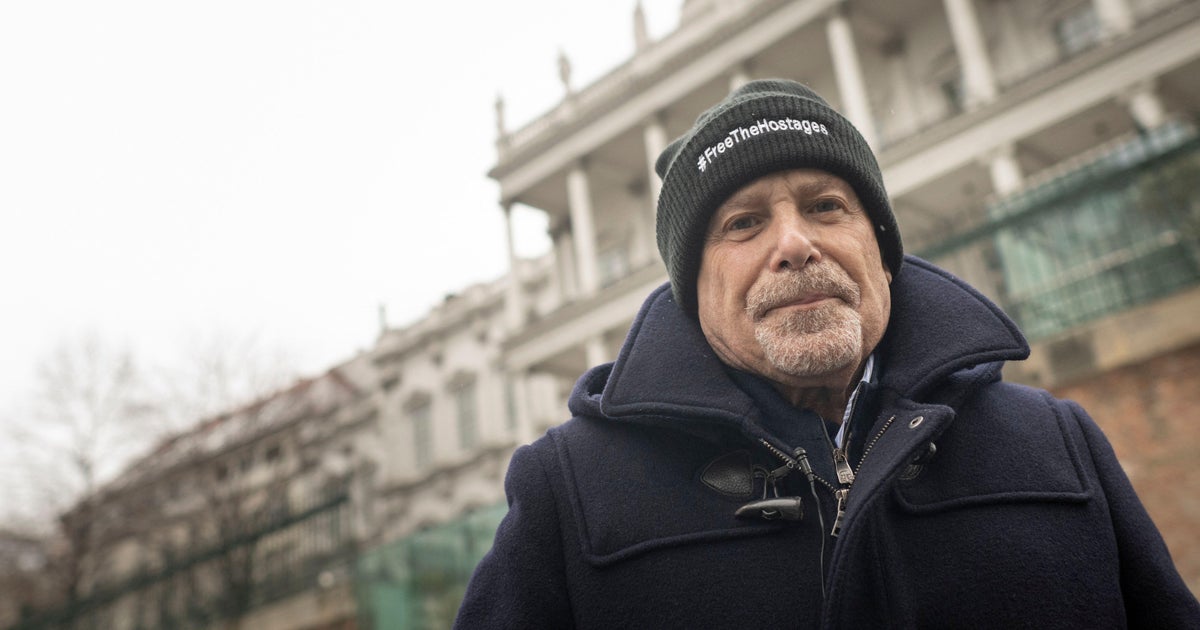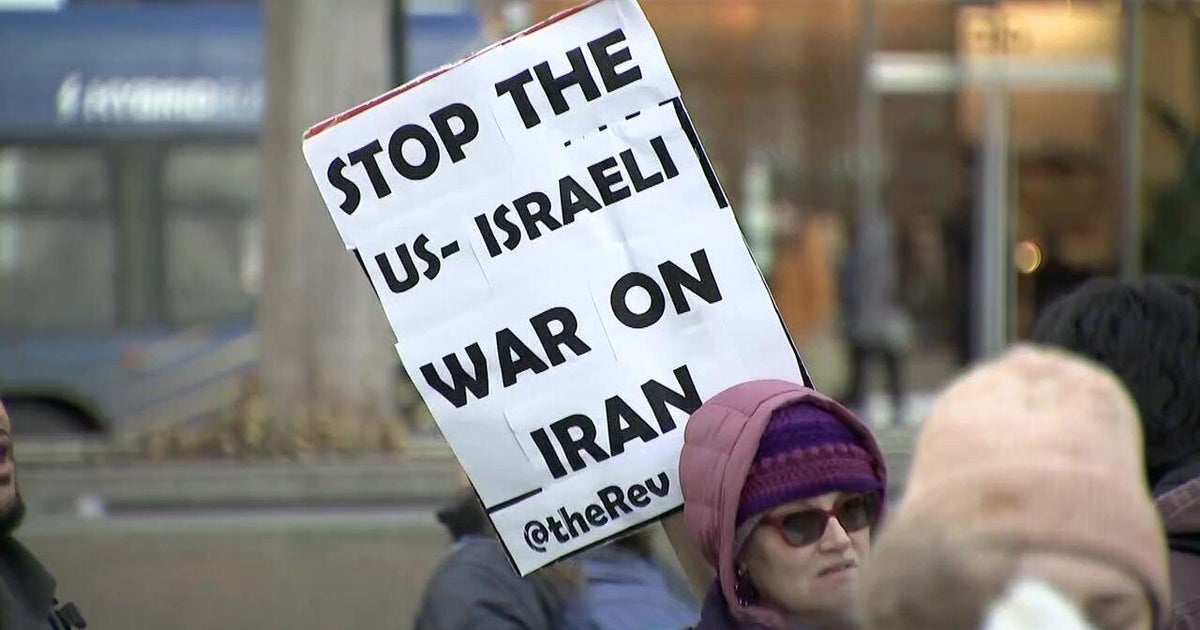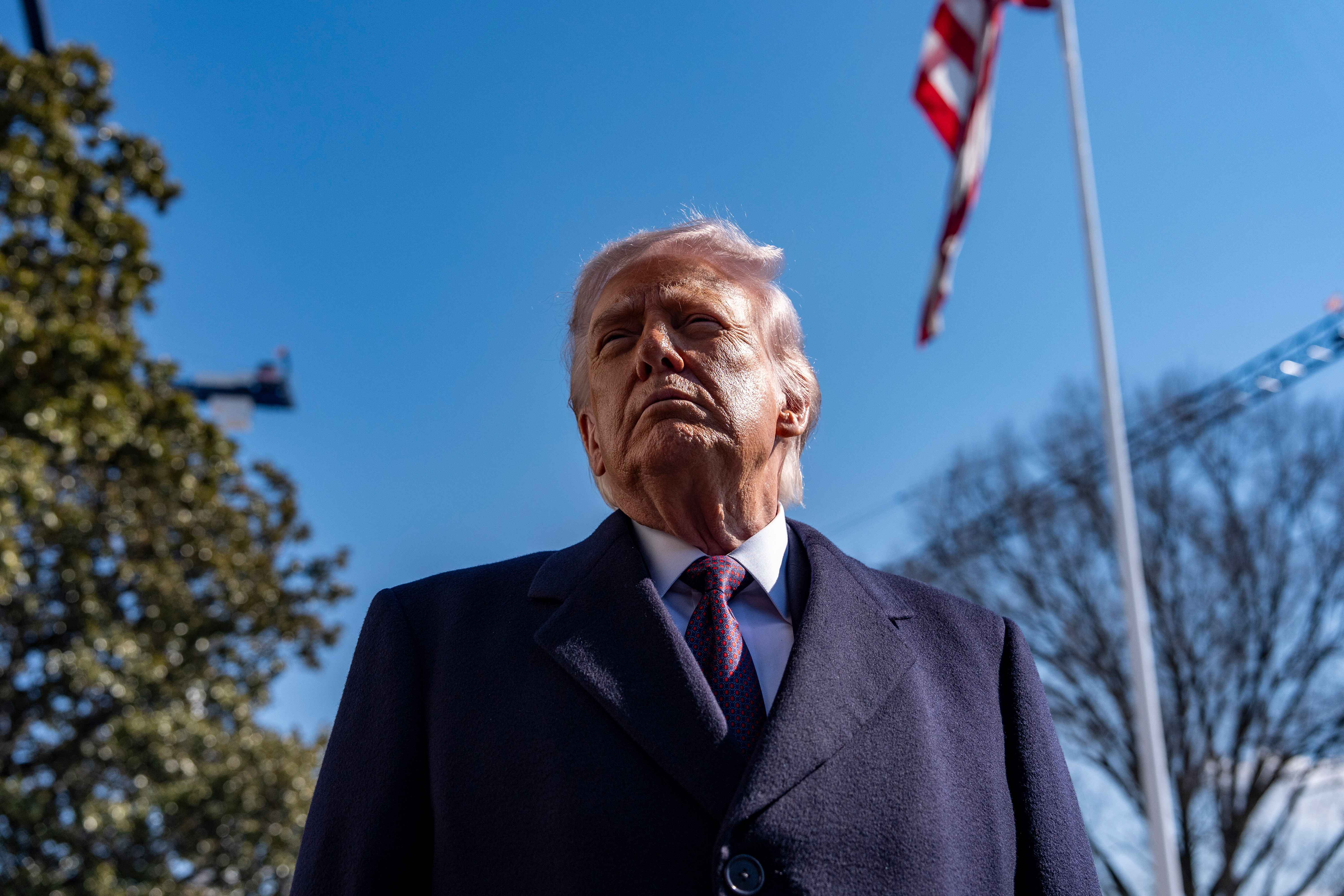Transcript: Defense Secretary Mark Esper on "Face the Nation," January 12, 2020
The following is a transcript of an interview with Defense Secretary Mark Esper that aired Sunday, January 12, 2020, on "Face the Nation."
MARGARET BRENNAN: Good morning and welcome to FACE THE NATION. We begin this morning with the secretary of defense, Mark Esper. Good morning to you, Mr. Secretary. Good to have you here.
U.S. SECRETARY OF DEFENSE MARK ESPER: Good morning, ma'am. Thank you for having me.
MARGARET BRENNAN: Our team in Tehran witnessed anti-government protests, chants against the regime. What is the U.S. assessment of what's happening on the ground?
SEC. ESPER: Well, first, let me say one thing to your viewers and to the American people. We are safer today than we were just a few weeks ago. Why? Because we took out the world's foremost terrorist leader, Qassem Soleimani, who had the blood of hundreds of American dead service members on his hands. Secondly, we restored deterrence with Iran without any United States casualties. And third, we reassured our partners- partners and allies in the region that we will stand up and defend our interests. I think when you look at--
MARGARET BRENNAN: In terms of restoring deterrence, there wasn't an- Iran fired off missiles at the United States--
SEC. ESPER: We- we are confident we restored deterrence. And if you look to your question--
MARGARET BRENNAN: You don't expect any further attacks on U.S. presence?
SEC. ESPER: We do not expect any further attacks. But if you look at what's happening on the ground today, you have just yesterday in Tehran and other cities, Iranians chanting, "death to the Ayatollah. We don't- we don't think America is our enemy." You can see the Iranian people are standing up and asserting their rights, their aspirations for a better government, a different- a different regime.
MARGARET BRENNAN: So what is the assessment, though, of what level of threat there is to the regime's hold on power? Because the president was tweeting yesterday in Farsi messages that he stands with the protesters and he's following closely what's happening.
SEC. ESPER: Well, we do stand with the Iranian people. They want the same things that most people around the world want. They want prosperity. They want the ability to- to live their lives, to raise their children. And we do support those same aspirations for people wherever they are. I just think you see a very corrupt regime that the Iranian people are finally standing up and trying to hold them accountable.
MARGARET BRENNAN: So is there still an offer to negotiate with that regime you call corrupt? Because by saying you stand with the protesters, it seems to be in contradiction to an offer to negotiate with the government they're protesting against.
SEC. ESPER: Well, it is still the legitimate government, if you will, of Iran. And what we've said, I've said publicly, the president certainly has said, is we will meet with them. We're willing to sit down and discuss without precondition, a new way forward, a- a series of steps by which Iran becomes a more normal country.
MARGARET BRENNAN: That's- that offer still stands?
SEC. ESPER: That offer still stands.
MARGARET BRENNAN: And if something happens to these protesters in the street, I mean, is there a line that the president won't meet with Iran?
SEC. ESPER: The president has drawn no preconditions other than to say we're willing to meet with the Iranian government.
MARGARET BRENNAN: Okay. I want to ask you about the downing of this Ukrainian commercial airliner. The Iranian foreign minister tweeted, admitted it was a mistake on their behalf, but also said essentially the US contributed because of the escalation. What's your response to that?
SEC. ESPER: Well, first of all, it's a terrible tragedy. One hundred seventy six people from many nations killed. It's a shame that the first reaction of the Iranian government to show their corruption, wanted to say that it was American propaganda, when clearly it was just a horrible mistake. To somehow allow Iran to play the victim card with the international community is just ridiculous. These tensions started many years ago, 20 years ago, 40 years ago, and escalated in the past 12 months, led by the terrorist leader, Qassem Soleimani, who is escalating attacks against United States forces in the region, in Baghdad in particular, which ultimately led to the siege of the United States embassy there.
MARGARET BRENNAN: I want to ask you about that attempt to breach the perimeter and the embassy, but also broadly, the threat that the U.S. was tracking that has been described as imminent time and again by the administration. The president said last week that there was an attempt to blow up the U.S. embassy in Baghdad. Here's specifically what he said on Fox News.
(BEGIN CLIP)
PRESIDENT TRUMP: I can reveal that I believe it would have been four embassies, but Baghdad certainly would have been the lead. But I think it would have been four embassy, could have been military bases, could have been a lot of other things, too. But it was imminent. And then all of a sudden he was gone.
(END CLIP)
MARGARET BRENNAN: Why couldn't you share that specific threat with senators in a classified briefing?
SEC. ESPER: Well, that information- there was a reference in this- in this exquisite intelligence to an attack on the United States embassy in Baghdad. That information was shared with the Gang of Eight. All that exceptional intelligence shared with the Gang of Eight, not the broader membership of the Congress.
MARGARET BRENNAN: A specific threat against the U.S. embassy in Baghdad to blow it up--
SEC. ESPER: Well, I was--
MARGARET BRENNAN: --was shared with the Gang of Eight?
SEC. ESPER: I was not in that meeting with the Gang of Eight. But I will tell you, I spoke to one of the briefers. What the briefer said to me coming out of that meeting was his assessment that most, if not all the members, thought that the intelligence was persuasive and that they- and that the Gang of Eight did not think that it should be released to the broader members of Congress.
MARGARET BRENNAN: But, broadly, can you clarify though, was the specific threat that the president shared with Fox News about four U.S. embassies being under threat, also shared with Congress? Why was there a difference?
SEC. ESPER: Well, what the president said was he believed that it probably and could have been attacks against additional embassies. I shared that view. I know other members of national security team shared that view. That's why I deployed thousands of American paratroopers to the Middle East to reinforce our embassy in Baghdad and other sites throughout the region.
MARGARET BRENNAN: Probably and could have been. That is- that sounds more like an assessment than a specific, tangible threat with a- a decisive piece of intelligence.
SEC. ESPER: Well, the president didn't say there was a tangible- he didn't cite a specific piece of evidence. What he said is he probably- he believed, could have been—
MARGARET BRENNAN: Are you saying there wasn't one?
SEC. ESPER: I didn't see one with regard to four embassies. What I'm saying is I share the president's view that probably- my expectation was they were going to go after our embassies. The embassies are the most prominent display of American presence in a country.
MARGARET BRENNAN: The description had been that this was a imminent threat to U.S. personnel and facilities in the region. Is that a more accurate description than what the president provided?
SEC. ESPER: Well, what I've said publicly, I've- I've said many times, is that we had information that there was going to be an attack within a matter of days that would be broad in scale, in other words, more than one country, and that it would be bigger than previous attacks, likely going to take us into open hostilities with Iran.
MARGARET BRENNAN: Is that threat gone?
SEC. ESPER: That was orchestrated by Qassem- Qassem Soleimani. He was the one- was- has led the attacks against America for 20 years now, so we had every expectation to believe that this would happen. In fact, a very, very senior person from the intelligence community said the risk of inaction is greater than the risk of action. That was compelling for me.
MARGARET BRENNAN: Is that threat gone?
SEC. ESPER: That threat has been disrupted. I think what we have to find out now is continue to work to make sure that that threat is completely eliminated.
MARGARET BRENNAN: Do you understand the frustration and anger from members of Congress who say why the president- why can the president tell Fox News something he can't tell members of Congress or- or members of his administration can't explicitly explain to members?
SEC. ESPER: Well, look, I understand the frustration. The fact is that evidence, that information is only available to the Gang of Eight. That's been practice and policy for decades.
MARGARET BRENNAN: But you said you don't know that it was told to the Gang of Eight.
SEC. ESPER: Well I'm talking about, the intelligence stream, the exquisite intelligence. That was told- that information of that source and method was revealed to the Gang of Eight. I understand the frustration of the broader members of Congress. They're not going to have access to that information. I would support it if we- if we didn't jeopardize the sources and methods. And I think the president said the same.
MARGARET BRENNAN: Senator Mike Lee, who will be with us on this program, also was frustrated with your briefing. And he said, you know, why did you tell members of Congress that it would essentially be a negative message to try to call into question that the authorization for military force in Iraq. Why did you--
SEC. ESPER: Well no--
MARGARET BRENNAN: --oppose that debate?
SEC. ESPER: Well, first of all, for every member that didn't like the brief, there's members that thought it was the greatest brief ever. That was never said that they should not have a debate, that they should have a discussion. I was asked a specific question about do I have concerns about a debate? And what all I said was this: is as that debate continues, don't not have a debate. But as that debate ensues, be conscious of the messaging, particularly to our troops, because they are looking for messages. Do they have the support of the American people while they are in harm's way? Why do I say that? My prede- predecessors have said that in the past. And I had the personal experience in the 1991 Gulf War. I was on the ground preparing for our final actions to go into Iraq. And we watched very carefully the debate in Congress in mid-January of that year to find out did we have the support of the--
MARGARET BRENNAN: Right.
SEC. ESPER: --American people and our lawmakers.
MARGARET BRENNAN: Quickly, are other Iranian leaders still potential targets? Because we have reported that there was an IRGC leader in Yemen targeted the very same day Qassem Soleimani was killed.
SEC. ESPER: Look, I'm not going to speak to any plan or alleged operations. We will exercise everything we need to do to protect the American people, to protect our forces, to protect our embassy.
MARGARET BRENNAN: But you're not denying that report?
SEC. ESPER: I'm not going to speak to any- any reports.
MARGARET BRENNAN: Okay. I want to quickly ask you as well about the presence in Iraq. Will the U.S. cut off U.S. aid if the Iraqi government tries to expel U.S. troops?
SEC. ESPER: Well, let's take this one step at a time. We're not there yet. What we need to do is sit down, have discussions with Iraq. We're doing that now. I want to- we also intend to do that with our NATO partners. I had a good conversation the other day with the NATO Secretary General, Jens Stoltenberg. We're going to send a team over to discuss how can NATO play a bigger role in the Iraq mission? Two important missions there. One is to train, advise and assist the Iraqi military. And number two is the enduring defeat of ISIS. We are committed to both those operations. And I think that though we can work out a better way forward.
MARGARET BRENNAN: Does plussing up a NATO presence mean drawing down the 5,000 U.S. troops?
SEC. ESPER: Well, it could. It's been my aspiration for some time to have a smaller footprint in Iraq and--
MARGARET BRENNAN: Do you have a number in mind?
SEC. ESPER: --the broader Middle East. No, I think that's- that's a matter for commanders on the ground to assess. We have to look at whether the capabilities that our NATO partners can bring to the- bring to the- bring to the fore. And I think that has to be a process in full respect of- of- of Iraq's sovereignty. At the end of the day, the United States government wants what the Iraqi people want, and that is a strong, prosperous and independent Iraq.
MARGARET BRENNAN: On Saudi Arabia, we are reporting- CBS News is reporting that about a dozen or so Saudi service people may be expelled from the United States in the wake of that Pensacola shooting and an investigation. Is that the right number? What can you tell us about that? And what did the president mean when he said Saudi Arabia deposited a billion dollars into a bank account in exchange for U.S. troop deployment?
SEC. ESPER: Well, two separate things. You know, first of all, the- what you're referring to is an investigation being conducted by the DOJ and the FBI in the wake of that- that tragic shooting in Pensacola some few weeks ago. In the wake of that, the department has taken a number of steps to- to ensure it doesn't happen again. I've signed out directives that address enhanced screening of all of our foreign students that address credentialing going forward, weapons policies, etc.. So we're doing everything we can. The investigation is being conducted by DOJ and FBI. I'm sure they will release something on that in the coming days.
MARGARET BRENNAN: And the billion dollars into the U.S. bank account?
SEC. ESPER: Well, what the president is referring to is burden sharing. Burden sharing comes in many forms. When we talk to NATO, we talk about contributing more to their GDP to defense commitment. And the president's actions have resulted in hundreds of billions of dollars more being contributed by our NATO allies. It includes—
MARGARET BRENNAN: But that's not a transaction like what he described.
SEC. ESPER: Well, it includes host nation support, it includes foreign military cells, it includes providing troops on the ground, and in cases it provides helping to offset some of our operations maintenance costs, which the Saudis are committed to doing, just as they did offset costs during the 1990 and '91 Gulf War.
MARGARET BRENNAN: Secretary—
SEC. ESPER: Burden sharing.
MARGARET BRENNAN: --Appreciate your time.
SEC. ESPER: Thank you, Margaret.
MARGARET BRENNAN: And we'll be back in a moment with Senator Mike Lee.



